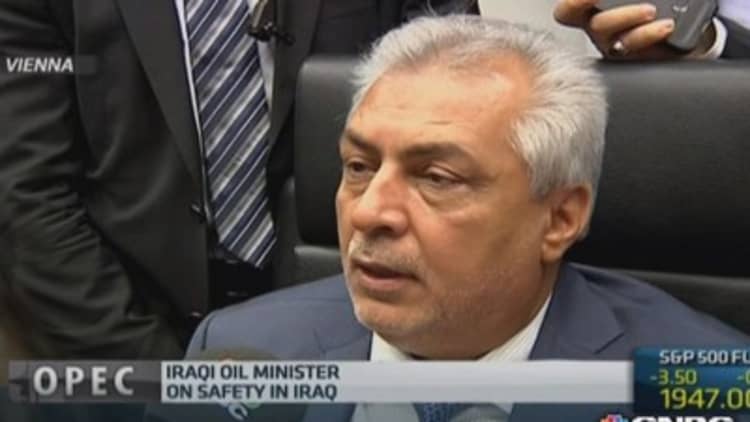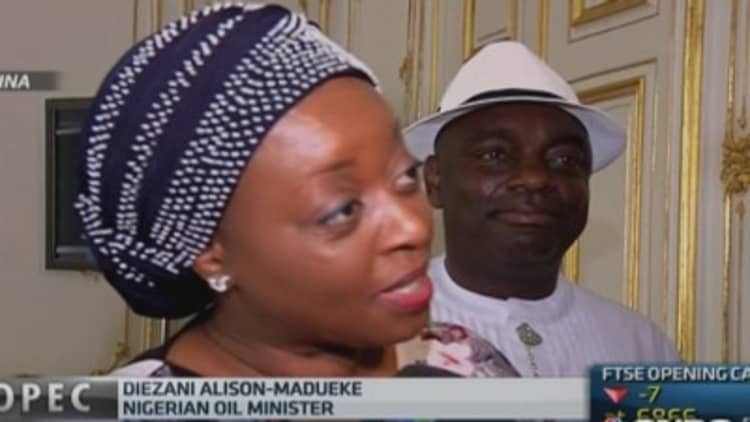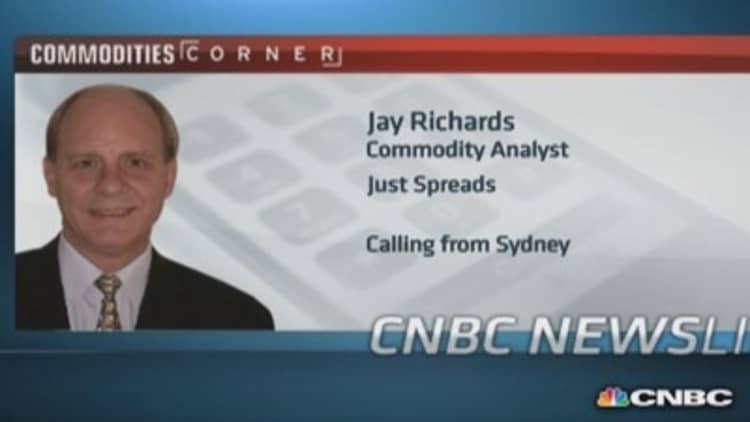
The price of oil rose Wednesday as violence escalated in Iraq's northern city of Mosul, with commodity analysts warning CNBC of an imminent oil spike if fighting in the country spreads south.
Confirmation came from new agency Reuters on Tuesday evening that The Islamic State in Iraq and the Levant (ISIS), an al-Qaeda splinter group, had seized control of Mosul after four days of heavy fighting. Reuters reported Wednesday afternoon that a further city, Tikrit, had also fallen into rebel hands.
Prime Minister Nuri al-Maliki has asked parliament to declare a state of emergency while reports state that 500,000 people have fled the city.
"It's probably the beginning of a long-standing civil war between the two major Islamic parties and, in time, I expect to see a northern Iraq and a southern Iraq without any outside intervention. It's probably the path ahead," Jay Richards, a commodity analyst at Just Spreads, told CNBC Wednesday.
Read MoreBrent gains towards $110 on US gasoline stocks draw hope, Iraq
U.S. crude added 33 cents to trade at $104.68 a barrel by 9:00 a.m. London time with Brent futures also moving higher by 44 cents at $109.96. The capture of Mosul had little impact on markets as that part of the country has no pipelines in operation, according to analysts. However, Reuters reported during the morning session that these Sunni militants had advanced into the oil refinery town of Baiji, located 220 kilometers north of Baghdad.
With the price over $100 a barrel, oil ministers at an Opec (Organization of the Petroleum Exporting Countries) meeting in Vienna on Wednesday left their output policy unchanged at 30 million barrels per day. However, talk centered on events in Iraq with the country's oil minister, Abdul Kareem Luaibi, trying to reassure onlookers that the situation was under control in the south.

"The midlands and the south are very, very safe. There is no accident in this area, it's only in the north and the government today has started to take very strong actions," he told CNBC in Vienna, adding that there were no threats to its current supply of 3.6 million barrels per day. Speaking ahead of the Opec meeting he also told reporters that Iraq plans to increase its oil output by 4 million barrels per day by the end of 2014 and said repairs to the Kirkuk-Ceyhan pipeline - located in the north of the country - were ongoing despite the situation in Mosul.
Read MoreIraq begins repairs to northern oil export pipeline
An escalation of the violence could see oil spike to around $120 per barrel, according to Johannes Benigni, managing director at JBC Energy, especially if capacity isn't stepped up by other nations to counteract this pressure.
"The market has a lot of upset potential," he said. "Fighters are controlling big parts of the country...the question really is when do they go south."
"It shows you how small the margin is...we don't have too much capacity," he added.

Read More
Iraq is relevant for the market right now because of its record levels of exports – and the potential to sell another 300,000 barrels, he said.
Bill Farren-Price, the CEO of Petroleum Policy Intelligence, remained upbeat on Iraq's encouraging oil production in the south of the country but remained concerned of violence "leaching" down from the north.
"It's a tale of two halves isn't it," he told CNBC outside the Opec meeting in Vienna.
"You've got to worry about a country where they are losing control apparently of swathes of sovereign territory."




